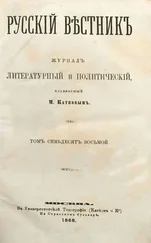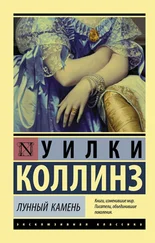| Wilkie Collins |
Уилки Коллинз |
| THE MOONSTONE |
Лунный камень |
| PROLOGUE THE STORMING OF SERINGAPATAM (1799) Extracted from a Family Paper |
I |
| I address these lines--written in India--to my relatives in England. My object is to explain the motive which has induced me to refuse the right hand of friendship to my cousin, John Herncastle. |
Я пишу эти строки из Индии к моим родственникам в Англию, чтобы объяснить, почему я отказал в дружеском рукопожатии кузену моему, Джону Гернкастлю. |
| The reserve which I have hitherto maintained in this matter has been misinterpreted by members of my family whose good opinion I cannot consent to forfeit. |
Молчание мое по этому поводу было ложно истолковано членами нашего семейства, доброго мнения которых я не хочу лишиться. |
| I request them to suspend their decision until they have read my narrative. |
Прошу их отложить свои выводы до тех пор, покуда они не прочтут мой рассказ. |
| And I declare, on my word of honour, that what I am now about to write is, strictly and literally, the truth. |
Даю честное слово, что напишу строгую и безусловную истину. |
| The private difference between my cousin and me took its rise in a great public event in which we were both concerned--the storming of Seringapatam, under General Baird, on the 4th of May, 1799. |
Тайное разногласие между мной и моим кузеном возникло во время великого события, в котором участвовали мы оба, - штурма Серингапатама под командованием генерала Бэрда 4 мая 1799 года. |
| In order that the circumstances may be clearly understood, I must revert for a moment to the period before the assault, and to the stories current in our camp of the treasure in jewels and gold stored up in the Palace of Seringapatam. |
Для того чтобы обстоятельства были вполне понятны, я должен обратиться к периоду, предшествовавшему осаде, и к рассказам, ходившим в нашем лагере о драгоценных каменьях и грудах золота, хранившихся в серингапатамском дворце. |
| II |
II |
| One of the wildest of these stories related to a Yellow Diamond--a famous gem in the native annals of India. |
Один из самых невероятных рассказов относится к желтому алмазу - вещи, знаменитой в отечественных летописях Индии. |
| The earliest known traditions describe the stone as having been set in the forehead of the four-handed Indian god who typifies the Moon. |
Стариннейшее из преданий гласит, что камень этот украшал чело четверорукого индийского бога Луны. |
| Partly from its peculiar colour, partly from a superstition which represented it as feeling the influence of the deity whom it adorned, and growing and lessening in lustre with the waxing and waning of the moon, it first gained the name by which it continues to be known in India to this day--the name of THE MOONSTONE. |
Отчасти по своему особенному цвету, отчасти из-за легенды - будто камень этот подчиняется влиянию украшаемого им божества и блеск его увеличивается и уменьшается с полнолунием и с ущербом луны - он получил название, под которым и до сих пор известен в Индии, -Лунного камня. |
| A similar superstition was once prevalent, as I have heard, in ancient Greece and Rome; not applying, however (as in India), to a diamond devoted to the service of a god, but to a semi-transparent stone of the inferior order of gems, supposed to be affected by the lunar influences--the moon, in this latter case also, giving the name by which the stone is still known to collectors in our own time. |
Я слышал, что подобное суеверие некогда имело место и в Древней Греции и в Риме, относясь, однако же, не к алмазу, посвященному божеству (как в Индии), а к полупрозрачному камню низшего разряда, подверженному влиянию луны и точно так же получившему от нее свое название, под которым он и доныне известен минералогам нашего времени. |
| The adventures of the Yellow Diamond begin with the eleventh century of the Christian era. |
Приключения желтого алмаза начинаются с одиннадцатого столетия христианской эры. |
| At that date, the Mohammedan conqueror, Mahmoud of Ghizni, crossed India; seized on the holy city of Somnauth; and stripped of its treasures the famous temple, which had stood for centuries--the shrine of Hindoo pilgrimage, and the wonder of the Eastern world. |
В ту эпоху магометанский завоеватель Махмуд Газни вторгся в Индию, овладел священным городом Сомнаут и захватил сокровища знаменитого храма, несколько столетий привлекавшего индийских богомольцев и почитавшегося чудом Востока. |
| Of all the deities worshipped in the temple, the moon-god alone escaped the rapacity of the conquering Mohammedans. |
Из всех божеств, которым поклонялись в этом храме, один бог Лупы избег алчности магометанских победителей. |
| Preserved by three Brahmins, the inviolate deity, bearing the Yellow Diamond in its forehead, was removed by night, and was transported to the second of the sacred cities of India--the city of Benares. |
Охраняемый тремя браминами, неприкосновенный идол с желтым алмазом во лбу был перевезен ночью во второй по значению священный город Индии - Бенарес. |
| Here, in a new shrine--in a hall inlaid with precious stones, under a roof supported by pillars of gold--the moon-god was set up and worshipped. |
Там, в новом капище - в чертоге, украшенном драгоценными каменьями, под сводами, покоящимися на золотых колоннах, был помещен бог Луны, ставший вновь предметом поклонения. |
| Here, on the night when the shrine was completed, Vishnu the Preserver appeared to the three Brahmins in a dream. |
В ночь, когда капище было достроено, Вишну-зиждитель явился будто бы во сне трем браминам. |

![Агата Кристи - На краю [английский и русский параллельные тексты]](/books/32247/agata-kristi-na-krayu-anglijskij-i-russkij-paralle-thumb.webp)
![Агата Кристи - Объявлено убийство [английский и русский параллельные тексты]](/books/33247/agata-kristi-obyavleno-ubijstvo-anglijskij-i-russ-thumb.webp)
![Фрэнсис Фицджеральд - По эту сторону рая [английский и русский параллельные тексты]](/books/34130/frensis-ficdzherald-po-etu-storonu-raya-anglijskij-thumb.webp)
![Уилки Коллинз - Лунный камень [текст оригинала]](/books/43505/uilki-kollinz-lunnyj-kamen-tekst-originala-thumb.webp)

